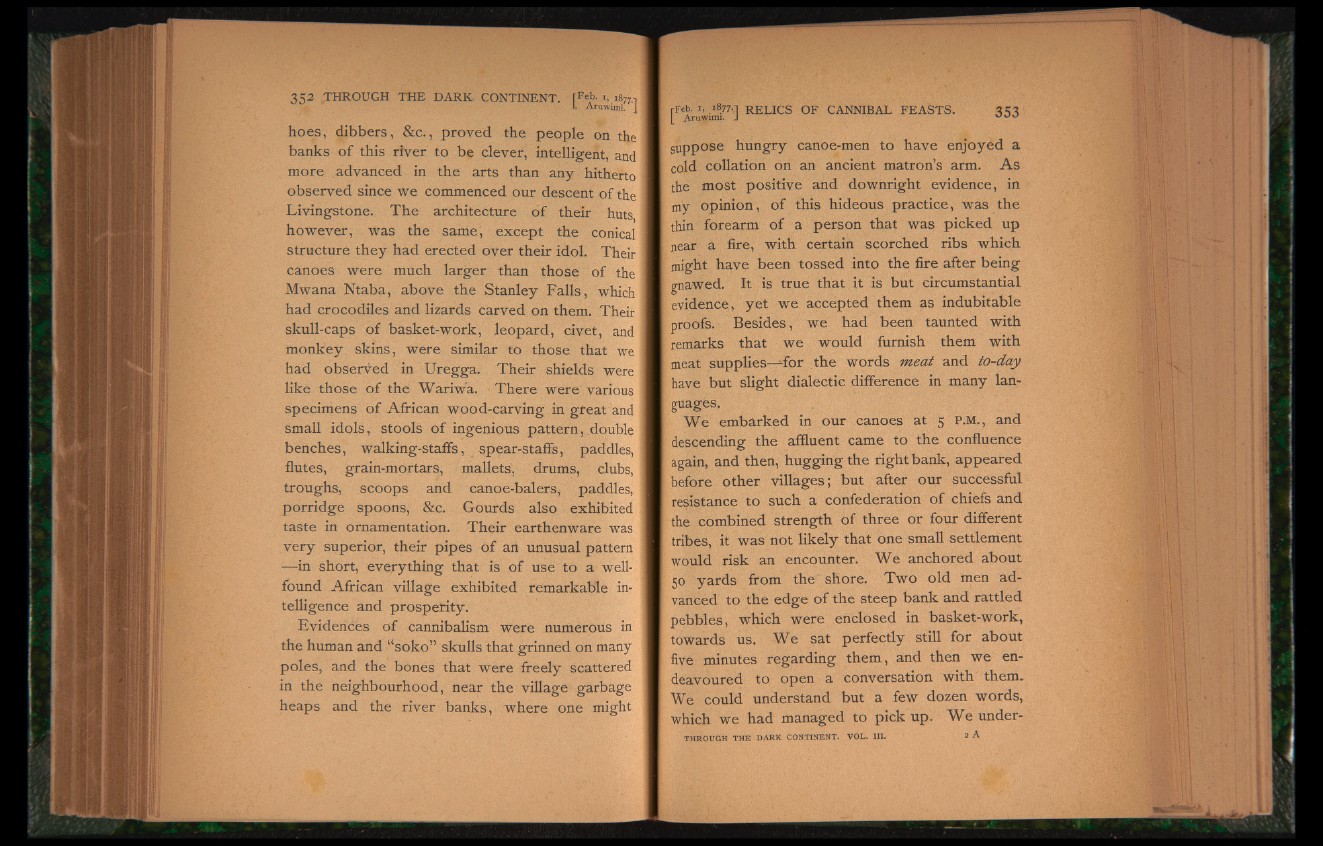
hoes, dibbers, &c., proved the people on the
banks of this river to be clever, intelligent, and
more advanced in the arts than any hitherto
observed since we commenced our descent of the
Livingstone. The architecture of their huts,
however, was the same; except the conical
structure they had erected over their idol. Their
canoes were much larger than those of the
Mwana Ntaba, above the Stanley Falls, which
had crocodiles and lizards carved on them. Their
skull-caps of basket-work, leopard, civet, and
monkey, skins, were similar to those that we
had observed in Uregga. Their shields were
like those of the; Wariwa. There were various
specimens of African wood-carving in great and
small idols, stools of ingenious pattern, double
benches, walking-staffs, spear-staffs, paddles,
flutes, grain-mortars, mallets, drums, clubs,
troughs, scoops and canoe-balers, paddles,
porridge spoons, &c. Gourds also exhibited
taste in ornamentation. Their earthenware was
very superior, their pipes of an unusual pattern
— in short, everything that is of use to a well-
found African village exhibited remarkable intelligence
and prosperity.
Evidences of cannibalism were numerous in
the human and “soko” skulls that grinned on many
poles, and the bones that were freely scattered
in the neighbourhood, near the village garbage
heaps and the river banks, where one might
[•F e b . I , , 1 8 7 7 - ] R E L IC S O F CAN N IBA L F E A S T S . 3 5 3
[ Aruwimi. J
suppose hungry canoe-men to have enjoyed a
cold collation on an ancient matron’s arm. As
the most positive and downright evidence, in
my opinion, of this hideous practice, was the
thin forearm of a person that was picked up
near a fire, with certain scorched ribs which
might have been tossed into the fire after being
gnawed. It is true that it is but circumstantial
evidence, yet we accepted them as indubitable
proofs. Besides, we had been taunted with
remarks that we would furnish them with
meat supplies—-for the words meat and to-day
have but slight dialectic difference in many languages.
We embarked in our canoes at 5 P .M ., and
descending the affluent came to the confluence
again, and then, hugging the right bank, appeared
before other villages; but after our successful
resistance to such a confederation of chiefs and
the combined strength of three or four different
tribes, it was not likely that one small settlement
would risk an encounter. We anchored about
50 yards from the shore. Two old men advanced
to the edge of the steep bank and rattled
pebbles, which were enclosed in basket-work,
towards us. We sat perfectly still for about
five minutes regarding them, and then we endeavoured
to open a conversation with them.
We could understand but a few dozen words,
which we had managed to pick up. We under-
THROUGH THE DARK CONTINENT. VOL. III. 2 A
H E SSSeN B T/—«*: -jA1